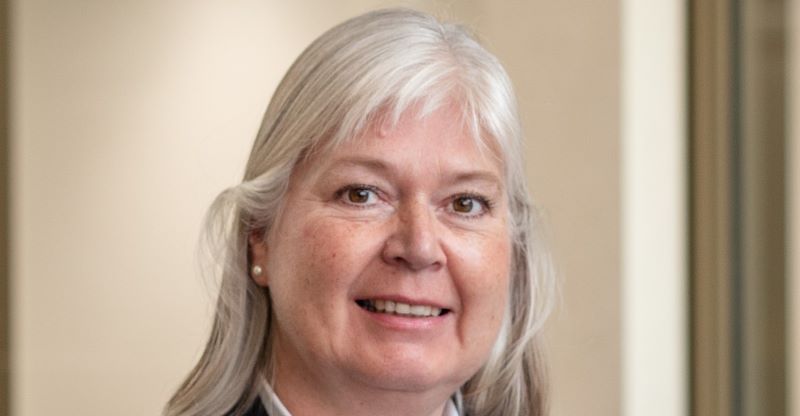
A leading research scientist at the University of Leeds who develops computer models to understand how ageing and artificial implants affect the tissues in our body has won a prestigious award.
Professor Nora de Leeuw, Executive Dean of the Faculty of Engineering and Physical Sciences, has been named as the winner of the Royal Society of Chemistry’s (RSC) Interdisciplinary Prize in recognition of brilliance in research and innovation.
Professor de Leeuw develops computer models to simulate materials that are used in medical applications - for example hip, knee and other bone implants or materials that repair teeth and jaws - and to understand soft tissue injuries and ageing.
It is difficult to investigate materials and processes that occur inside the body. Computer models can help us to understand how implant materials interact with the body and how hard and soft tissues age and repair themselves.
Professor de Leeuw won the prize for the development and application of computational chemistry to enable atomic-level insights into biomedical materials for in vivo applications and nature-inspired catalytic systems to produce non-fossil renewable fuels.
Science is a real team effort, and I very much feel that this prize is recognition of all the people I have worked with over the years.”
Professor Simone Buitendijk, Vice-Chancellor and President at the University of Leeds, said: “This recognition is highly deserved. Professor de Leeuw’s innovative and transformational research is addressing complex challenges and advancing our understanding of the human body. Working with colleagues across the University and beyond, her outstanding work is helping to shape a better future for humanity.”
Dr Helen Pain, Chief Executive of the Royal Society of Chemistry, said: “The chemical sciences are at the forefront of tackling a range of challenges facing our world. From fundamental chemistry to cutting-edge innovations, the work that chemical scientists do has an important role to play in building our future.
“The RSC’s prizes programme enables us to reflect on and celebrate the incredible individuals and teams whose brilliance enriches our knowledge, advances our understanding, and brings new ideas and technologies that benefit society as a whole.”
Further information
For media enquiries please contact Richard Abbott in the University of Leeds press office via r.abbott1@leeds.ac.uk